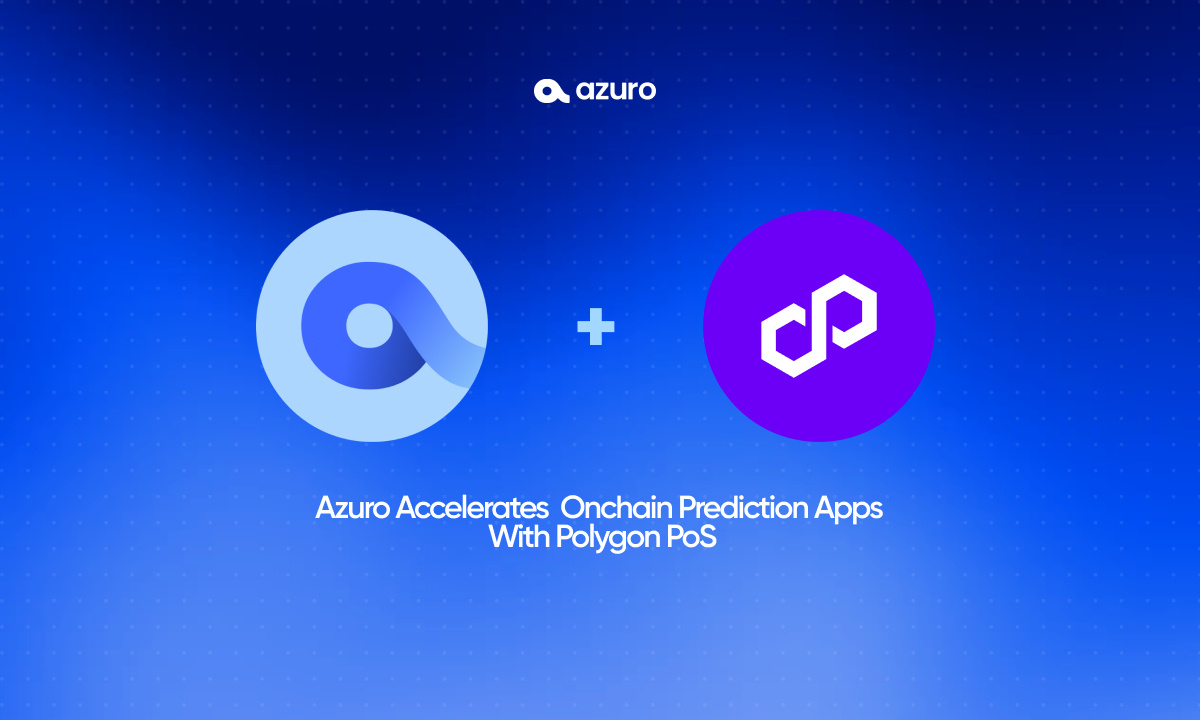
Azuro to Accelerate Development of Onchain Prediction Apps Through New Initiative on Polygon PoS
Lisbon, Portugal, June 18th, 2024, Chainwire
Azuro, the leading onchain predictions layer, today announced a new strategic program to foster the development of user-facing onchain prediction applications with a focus on sports and entertainment events.
This initiative brings Azuro and the Polygon community closer together to refine and enhance the value proposition for entrepreneurs leveraging their combined infrastructure solutions. As an initial step, Azuro has agreed to launch a grants program aimed at supporting and fostering the creation of new applications leveraging Azuro on Polygon PoS.
This effort to provide financial and technical support to developers is designed to encourage innovation and expand the ecosystem of applications, driving the next wave of growth in onchain prediction markets.
In the coming weeks, an application stage will open for developers to submit their projects. The program will distribute a total fund of $20,000 among two grant tiers: $2,000 for feature additions to existing apps and $4,000 for complex features or new dApps.
Projects will be evaluated on their potential to add value to the Azuro and the Polygon community, with criteria including well-defined development stages, technical specifications, time estimates, and a go-to-market strategy.
Building up on a successful integration
This announcement marks a significant milestone in the longstanding collaboration between Azuro and the Polygon community, underscoring a shared vision for the future of prediction markets. Since integrating with Polygon PoS in February 2023, Azuro has emerged as a revenue leader among Polygon applications, leveraging Polygon’s robust technology and seamless user experience to drive the growth of its prediction markets.
Azuro is already powering over 27 active applications running onchain prediction markets, most of them built using Azuro’s infrastructure on Polygon PoS , with transaction volumes surpassing $360 million and liquidity sourced from more than 4,500 providers. The Azuro protocol’s unique liquidity pool design, sophisticated tooling, and oracle solutions enable applications to deploy without upfront investment or running costs, allowing developers to focus entirely on user acquisition, engagement, and monetization.
Polygon PoS is one of the most used networks in the world, hosting thousands of dApps, processing more than 200 million unique addresses, 3 million average daily transactions, and securing $5 billion in assets. Polygon PoS offers scalability and cost-efficiency, with an average transaction cost of just ~$0.015, making it an ideal blockchain for Azuro and its ramping, user-centric prediction markets ecosystem, particularly strong in the sports sector.
Apps connected to Azuro can offer users a vastly improved UX compared to other on-chain options, presenting a viable alternative to traditional online prediction operators. Polygon PoS’s low transaction fees and ability to scalable throughput allow projects to grow efficiently. Its proof-of-stake architecture ensures costs are up to 10,000 times lower per transaction than Ethereum.
Polygon PoS’s EVM compatibility further enhances development speed and efficiency, allowing developers to deploy from Ethereum seamlessly and benefit from Ethereum network effects. Additionally, Polygon PoS’s highly active and engaged developer community provides 24/7 support and extensive documentation, making building on Polygon PoS easier and more accessible.
About Azuro
Azuro is the onchain predictions layer. It consists of modular tooling, oracle and liquidity solutions for EVM chains to host powerful prediction and gaming apps. With its unique infrastructure layer approach Azuro makes on-chain predictions and gaming portable and composable. It allows anyone to engage and monetize users by building apps, integrations, and products quickly, permissionlessly and with zero upfront or running costs.
For more information or press inquiries, users can contact team@azuro.org
Website | Twitter | Discord | Medium | Documentation | Github | Onchain Stats
